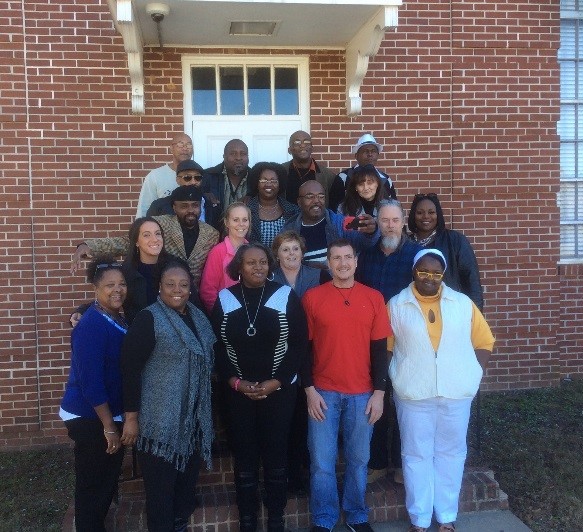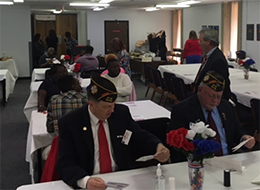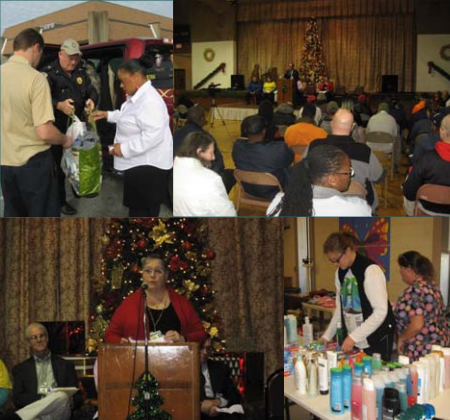
In 2014, Georgia’s Department of Behavioral Health and Developmental Disabilities (DBHDD), Department of Corrections (GDC), and the Georgia Mental Health Consumer Network (GMHCN) embarked on a partnership to offer innovative peer support to Georgia’s returning citizens through the Forensic Peer Mentor Program. In 2015, the partnership expanded to include the newly formed Department of Community Supervision (DCS). Plans are underway for the program to expand into additional facilities in January 2017.
On November 28, 2016, the third cohort of 15 certified peer specialists (CPS) and certified addiction recovery empowerment specialists (CARES) began the weeklong training designed to help them use their own experience in the criminal justice system and their recovery from a behavioral health disorder to help the people that they will support. As forensic peer mentors, they will help individuals leaving correctional facilities with transition/release planning; obtaining stable housing; employment; disability benefits; transportation coordination; linkage to community behavioral health services and recovery supports; and learning new skills.
The training was facilitated by Jonathan “DJ” Rees, a subject matter expert on the forensic peer movement, as well as the Sequential Intercept Model, an emerging best practice that assists communities in identifying points of interception along the criminal justice system continuum where stakeholders can intervene to prevent individuals with mental illness from going to jail/prison due to offenses that may be related to their symptoms.
According to Rees, “when returning citizens are released from jail, they face challenges like discrimination in being hired for a job and finding housing in the community. Despite these challenges, peer support can reduce the recidivism rate of people returning to jail.”
Upcoming program expansion will include placement of forensic peer mentors at four GDC state prison sites, two DCS day reporting centers, one mental health court, and one DBHDD regional hospital. This expansion brings the total number of the forensically trained CPS and CARES workforce across the state to 37, and increases the number of worksites from 11 to 17.
“Since enrolling our first returning citizen in April of 2015 into the Forensic Peer Mentor program, the program has really taken off,” said Jill Mays, assistant director of DBHDD’s Office of Adult Mental Health and coordinator of the Forensic Peer Mentor Program. “Data shows that we have been able to greatly increase successful re-entry and reduce the recidivism rate for individuals with mental illness and/or co-occurring substance use disorders who are being released from prison or on probation/parole. Our belief is that with support from the forensic peer mentors and other appropriate community resources, all returning citizens have the capacity to live and thrive in the community.”
 West Central Georgia Regional Hospital, along with three veterans service organizations, hosted a special recognition lunch event for staff, client, and special guest veterans in observance of Veterans Day last month.
West Central Georgia Regional Hospital, along with three veterans service organizations, hosted a special recognition lunch event for staff, client, and special guest veterans in observance of Veterans Day last month. Cities across Georgia participated in the 58th annual Georgia Municipal Association’s Mayors’ Christmas Motorcade, donating gifts to individuals at DBHDD’s state hospitals.
Cities across Georgia participated in the 58th annual Georgia Municipal Association’s Mayors’ Christmas Motorcade, donating gifts to individuals at DBHDD’s state hospitals.